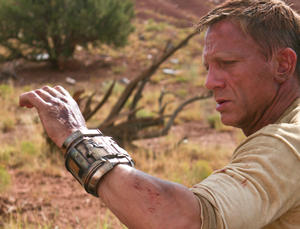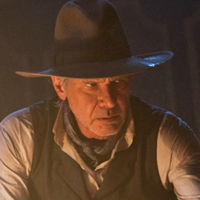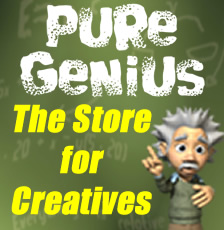Q&A with ‘Cowboys and Aliens’ Scribes Mark Fergus and Roberto Orci
(Originally published on blogcritics.org)
Cowboys & Aliens screenwriters Mark Fergus (First Snow, Children of Men, Iron Man) and Roberto Orci (Star Trek, Transformers, Fringe) beamed down to The Los Angeles Film School the night before Cowboys & Aliens opened to share observations about life in the warp-speed lane with students and fans.
The film begins in the old west when a stranger (Daniel Craig) with no memory of his past stumbles into the desert town of Absolution. The only hint to his history is a mysterious shackle that encircles one wrist. He discovers that thepeople of Absolution don’t welcome strangers, and nobody makes a move on its streets unless ordered to do so by the iron-fisted Colonel Dolarhyde (Harrison Ford). When monsters from the sky invade their town, Absolution must turn to the stranger for help.
The Q&A, which launched after the applause for the movie died down, was moderated by Jeff Goldsmith as part of a continuing series held at the school on Sunset Boulevard.
The writing credits for Cowboys & Aliens go on and on. Mark Fergus was on the team which gave the film its final form and tone and Roberto Orci was part of the team, as a producer, too, which shepherded the script all the way through production. According to Orci, Fergus had to leave when the success of Iron Man made Fergus such a hot property “…we could no longer afford him.”
Why so many writers? Cowboys & Aliens goes back to 1997. It had several runs of popularity at several studios but never made it to production. It then resurfaced as a graphic novel and began another round of sparking interest at studios and production companies. One day Ron Howard and Steven Spielberg where having lunch together and realized that they both had an interest in the property. That began the current successful production.
Goldsmith asked about the fact that Steve Oedekerk (Ace Ventura, The Nutty Professor, Bruce Almighty) had a “Screen story by” credit.
Orci explained that a lot of people had done drafts of the script. “They did great creative things and we enjoyed reading them. In Steve’s case he had taken a Men in Black approach. Ultimately though we decided we wanted to go more with a ‘hard Western.”
Orci pointed out that both Ron Howard and Steven Speilberg had a great respect for the Western genre: “Ron was in John Wayne’s last move, for Pete’s sake!”
Fergus explained, “When we worked on our drafts, you know Steven (Spielberg) was so influenced by John Ford, and (Director Jon) Favreau seems to be the guy now who’s doing those great popcorn movies with tons of intelligence and heart, and that was the tone we wanted to go with. We wanted some version of a great John Ford western, like The Searchers, which is really dark, or Stagecoach which has a ton of humor in it, and marry that to the Spielberg tone of Close Encounters or Raiders. And ultimately it went to an even cooler, darker place like Unforgiven.
“We went with character, story, and ‘it’s really happening’ and stayed committed to that.”
On adapting other peoples work for the screen, Fergus and Orci agreed that you had to be a fan of the work to know what to leave out and add in. Fergus said, “If you don’t know how to feel like a kid when you react to it, it won’t work. All that can explain how you know what to keep or add is Fandom.”
Orci explained: “I go back to the Blade Runner example. You read the book and you see the movie and it’s a completely different experience, but the same kind of soul to them. That’s what adaptation is about. No one is going to say to you, ‘Great job being true to the source material’, if you’ve written a sucky movie.”
On behalf of the students in attendance, Goldsmith asked about the best way to break in. Is it still the spec script?
Fergus said that it was. “But it’s more than that. You’ve got to have as much material as you can possibly have. If you have only one story, you don’t have anything. Spec sales aren’t as big anymore, but that is still the way an agent or someone at a production company will identify you as someone worth reckoning with.”
Orci agreed: “We never got anywhere selling a spec or setting anything up, but it was a way for the community to identify you and say, oh, you’re a voice. If you write a lot of good stuff people will notice. When people say to me, ‘There’s no way in’, I say, ‘Well, have you written four great scripts yet?”





